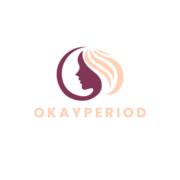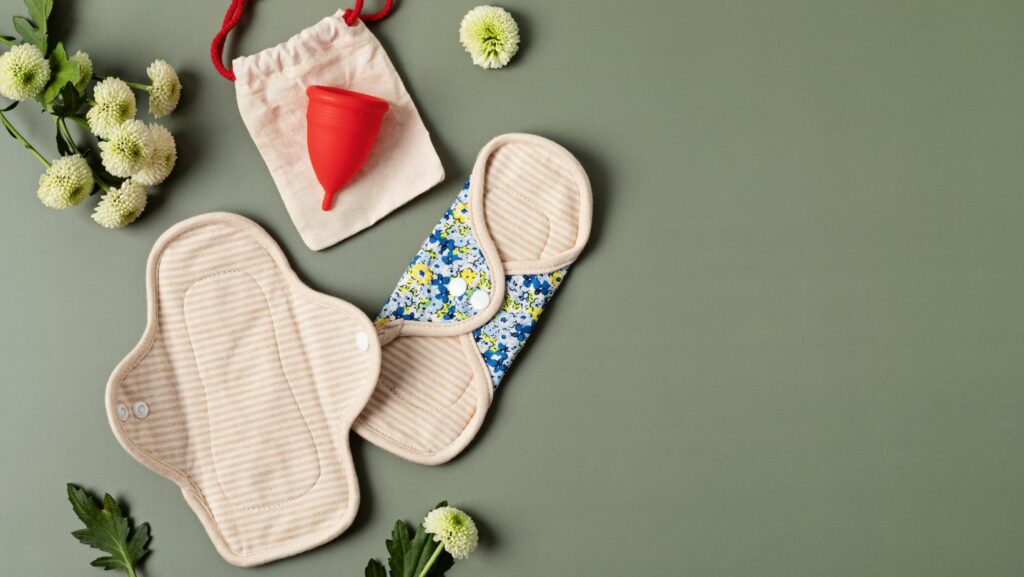Access to menstrual products is a fundamental necessity, yet millions of people worldwide still struggle to afford them. Menstruation is a natural biological process, but the financial burden it imposes can lead to significant health and social issues. When individuals can’t afford pads or tampons, they may resort to unsafe alternatives, risking infections and other health complications. Providing free menstrual products isn’t just a matter of convenience; it’s a crucial step toward gender equality and public health. By ensuring everyone has access to these essential items, we can reduce absenteeism in schools and workplaces, promote dignity, and support overall well-being. It’s time to recognize menstrual products as essential items, just like toilet paper or soap, and make them freely available to all.
Why Menstrual Products Should Be Free
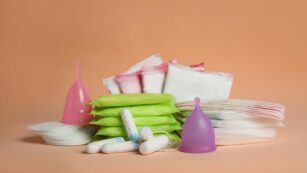 Providing free menstrual products addresses fundamental needs. Millions worldwide lack access to these essential items, leading to negative health and social outcomes. People using unsafe alternatives, like rags or paper, face increased infection risks and long-term health issues. This practice is particularly harmful in low-income populations. Ensuring free access promotes gender equality. Women’s and girls’ participation in education and the workforce drops during menstruation if they can’t afford these products. For instance, UNESCO estimates that 1 in 10 girls in Africa misses school during their periods. Eliminating period poverty reduces absenteeism, improving academic and professional opportunities. Menstrual products as basic necessities connect public health benefits. Recognizing them as essential, akin to toilet paper, supports broader health initiatives. Consistent access ensures basic hygiene standards, resulting in fewer UTIs and reproductive tract infections. Public health systems benefit by reducing the burden of treating preventable conditions.
Providing free menstrual products addresses fundamental needs. Millions worldwide lack access to these essential items, leading to negative health and social outcomes. People using unsafe alternatives, like rags or paper, face increased infection risks and long-term health issues. This practice is particularly harmful in low-income populations. Ensuring free access promotes gender equality. Women’s and girls’ participation in education and the workforce drops during menstruation if they can’t afford these products. For instance, UNESCO estimates that 1 in 10 girls in Africa misses school during their periods. Eliminating period poverty reduces absenteeism, improving academic and professional opportunities. Menstrual products as basic necessities connect public health benefits. Recognizing them as essential, akin to toilet paper, supports broader health initiatives. Consistent access ensures basic hygiene standards, resulting in fewer UTIs and reproductive tract infections. Public health systems benefit by reducing the burden of treating preventable conditions.
Public Health Implications
Access to free menstrual products significantly impacts public health by promoting hygiene and reducing health risks. It also addresses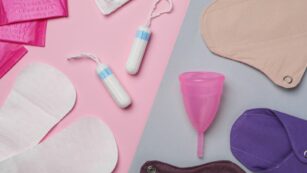 mental health concerns linked to period poverty. Inadequate access to menstrual products can result in using unsafe alternatives like rags, paper, or even socks. These unsanitary items increase the risk of infections such as bacterial vaginosis and urinary tract infections (UTIs). According to the American Medical Association, lack of proper menstrual hygiene can lead to reproductive health issues, which can be more pronounced in low-income communities. Providing free products ensures that individuals maintain adequate hygiene, reducing the prevalence of these infections. Period poverty also affects mental health. Constant anxiety about affording menstrual products can lead to chronic stress and depression. Research by Plan International USA indicates that 1 in 4 teens felt stressed due to inadequate access to period products. Providing free menstrual products can alleviate this stress, offering peace of mind and improving overall mental well-being. It enables individuals to participate fully in educational and social activities without the distraction and shame associated with menstrual product scarcity. Providing these items for free levels the playing field, ensuring women and those who menstruate aren’t disadvantaged financially or socially.
mental health concerns linked to period poverty. Inadequate access to menstrual products can result in using unsafe alternatives like rags, paper, or even socks. These unsanitary items increase the risk of infections such as bacterial vaginosis and urinary tract infections (UTIs). According to the American Medical Association, lack of proper menstrual hygiene can lead to reproductive health issues, which can be more pronounced in low-income communities. Providing free products ensures that individuals maintain adequate hygiene, reducing the prevalence of these infections. Period poverty also affects mental health. Constant anxiety about affording menstrual products can lead to chronic stress and depression. Research by Plan International USA indicates that 1 in 4 teens felt stressed due to inadequate access to period products. Providing free menstrual products can alleviate this stress, offering peace of mind and improving overall mental well-being. It enables individuals to participate fully in educational and social activities without the distraction and shame associated with menstrual product scarcity. Providing these items for free levels the playing field, ensuring women and those who menstruate aren’t disadvantaged financially or socially.
Successful Initiatives And Case Studies
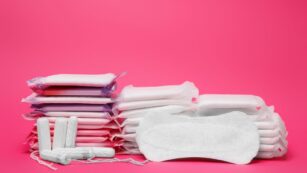 Several countries and organizations have already taken significant steps to provide free menstrual products, showcasing the positive impact of such initiatives. Scotland became the first country to make period products free for all, leading to increased school attendance and improved public health. New Zealand followed suit, offering free products in schools to ensure no student misses out on education due to period poverty. Local governments in the US, such as New York City, have implemented programs to provide free menstrual products in public schools, shelters, and correctional facilities. These initiatives have seen a marked reduction in absenteeism and a boost in overall well-being. Nonprofit organizations like The Pad Project and PERIOD have also played crucial roles in distributing free menstrual products and advocating for policy changes. Their efforts have highlighted the importance of community involvement in addressing period poverty and promoting gender equality. These successful case studies demonstrate that providing free menstrual products is not only feasible but also essential for fostering a healthier, more equitable society. Access to free menstrual products reduces gender discrimination. Menstruation is a natural biological process that only affects women and some transgender people. When products aren’t freely available, it creates an unfair burden.
Several countries and organizations have already taken significant steps to provide free menstrual products, showcasing the positive impact of such initiatives. Scotland became the first country to make period products free for all, leading to increased school attendance and improved public health. New Zealand followed suit, offering free products in schools to ensure no student misses out on education due to period poverty. Local governments in the US, such as New York City, have implemented programs to provide free menstrual products in public schools, shelters, and correctional facilities. These initiatives have seen a marked reduction in absenteeism and a boost in overall well-being. Nonprofit organizations like The Pad Project and PERIOD have also played crucial roles in distributing free menstrual products and advocating for policy changes. Their efforts have highlighted the importance of community involvement in addressing period poverty and promoting gender equality. These successful case studies demonstrate that providing free menstrual products is not only feasible but also essential for fostering a healthier, more equitable society. Access to free menstrual products reduces gender discrimination. Menstruation is a natural biological process that only affects women and some transgender people. When products aren’t freely available, it creates an unfair burden.
